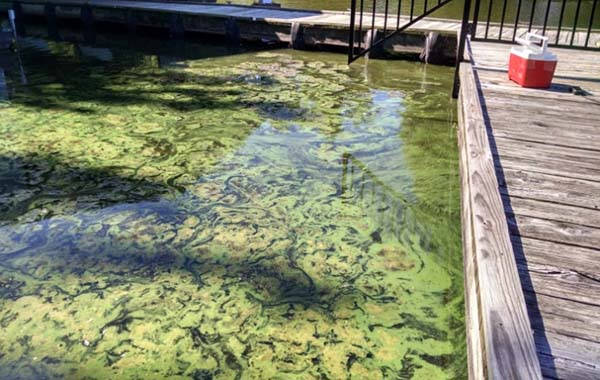 Environmental groups have settled long-running litigation against the Metropolitan Water Reclamation District of Greater Chicago (MWRD), over pollution from three of its Chicago-area sewage treatment plants. The agreement requires the parties to work together to curb phosphorous discharges from the plants, that are fueling algae blooms and lowering water quality in the Chicago River system and downstream waters, as far away as the Gulf of Mexico.
Environmental groups have settled long-running litigation against the Metropolitan Water Reclamation District of Greater Chicago (MWRD), over pollution from three of its Chicago-area sewage treatment plants. The agreement requires the parties to work together to curb phosphorous discharges from the plants, that are fueling algae blooms and lowering water quality in the Chicago River system and downstream waters, as far away as the Gulf of Mexico.
The Chicago River system is much cleaner as a result of investment in clean water infrastructure and the Clean Water Act. However, an overload of phosphorus and other nutrients from wastewater plants continues to pollute these waters. The settlement approved by MWRD’s Board of Commissioners, resolves a pair of lawsuits, targeting the District’s phosphorus pollution as a violation of the Federal Clean Water Act. To address the problem MWRD has agreed to upgrade pollution controls at its largest wastewater plants by 2030.
The parties also have agreed to form a joint committee to hire scientists and engineers. They will identify problematic places in the Chicago River system and come up with a plan to eliminate algal and plant issues. The District has agreed to extensive monitoring of phosphorus-related problems in the downstream, Lower Des Plaines River, as well as a study to determine the feasibility of a tenfold reduction in the MWRD’s phosphorus discharge limit, in line with more stringent limits set elsewhere in the Country.
“Our local waters have been a poster child for the national problem of phosphorus pollution, but now we have a chance to be a model for the solution,” said Ann Alexander, a Senior Attorney at the Natural Resources Defense Council (NRDC). “If you can fix this in a waterway with a reputation like the Chicago River, it means you can clean up any river. This settlement puts us on a path that can signal an urban river renaissance nationally.”
The Illinois EPA will play a key role in addressing the situation, implementing an enforceable requirement in the District’s discharge permits for its three Chicago-area plants. Attorneys for the environmental organizations expressed confidence that the State Agency, which was extensively involved in the settlement discussions, intends to do so promptly. The Illinois EPA separately agreed to conduct extensive monitoring of algae-related pollution in the downstream Illinois River.
Jack Darin, Director of the Illinois Chapter of the Sierra Club, said, “This is a major breakthrough in the decades-long effort to restore the Chicago River system to a healthy waterway, that supports wildlife, recreation, and economic development in our communities. New pollution controls will make significant reductions in nutrient pollution, the largest remaining pollution problem in these waters, and create good jobs modernizing our water infrastructure. We are excited to partner with MWRD and area communities in implementing this historic agreement in the years to come.”
“This settlement signals a positive change toward improving the way permits are written to protect Illinois waters,” said Jessica Dexter, Staff Attorney at the Environmental Law and Policy Center. “We expect other dischargers to follow suit and be part of the long-term solution, to rid algae overgrowth from our waterways.”
“Here in the Gulf region, the nutrient problem really hits home,” said Matt Rota, Senior Policy Director at New Orleans-based Gulf Restoration Network. “The MWRD has been a very real part of that problem. They’re the largest single contributor to the Gulf Dead Zone right here in our back yard. We’re very pleased that they’re now working with us to be part of the solution.”
“Our members love to paddle on our local waterways, but the disgusting, smelly algae that blooms every summer can really get in the way of their enjoyment,” said Kim Knowles, Staff attorney with Prairie Rivers Network. “We’re glad to finally be headed toward a long term solution.”
